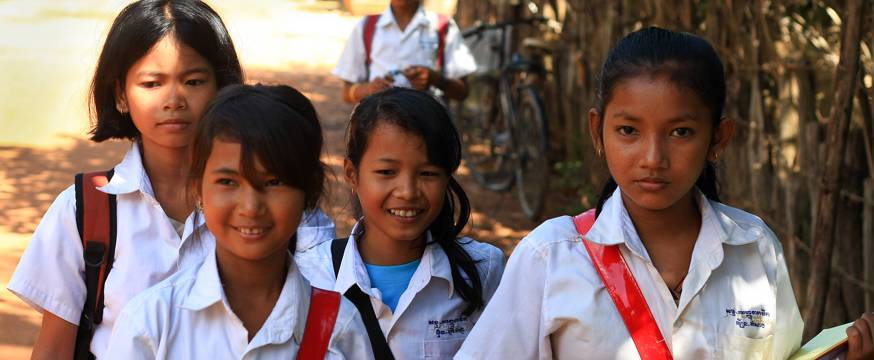
SEA-PLM survey preparations begin in SE Asia
Research 18 Sep 2018 4 minute readField trials of a groundbreaking assessment program have concluded and preparations for the main survey are underway, reports ACER Research Director Jeaniene Spink.
SEA-PLM survey preparations begin in SE Asia
The South East Asia Primary Learning Metrics (SEA-PLM) assesses reading, writing, maths and global citizenship in Grade 5 students in the ASEAN region. A collaboration between the Australian Council for Educational Research (ACER), the South East Asian Ministers of Education Organisation (SEAMEO) and UNICEF, field trials took place in Vietnam, Laos, Cambodia, Malaysia, the Philippines, Brunei and Myanmar between 2014 and 2018. The result is a set of robust, valid and culturally sensitive instruments for use in the main survey, which will be implemented from the beginning of 2019.
One of the biggest challenges in international educational testing lies with developing a tool that is both sensitive to cultural context yet wide-ranging enough to allow for international comparison. SEA-PLM was designed specifically for the broader South East Asian region, with items adapted to meet the local needs of participating countries. It conforms to international standards but is delivered locally, so that the resulting picture of learning progress is both detailed enough to inform national education policy and comprehensive enough to allow for regional comparison and standardised international reporting.
Capacity building in the region
The primary purpose of SEA-PLM is to build assessment capacity in participating countries. In three large-scale regional and 26 in-country capacity development workshops, ACER – with project partners UNICEF and SEAMEO – united educators and policymakers in understanding the tool and its administration according to assessment best practice. Over eight test administrations in seven countries, the survey was delivered to 15 392 students, 14 479 parents and 2558 teachers in 277 primary schools. More than 50 ACER staff have worked with regional SEA-PLM technical reference groups to develop complete sets of tools for training, observation and reporting, as well as comprehensive operational manuals specific to each field and more than 750 individual items completely unique to this program.
Adapting the tool to meet local needs presented some challenges. In the writing domain, differences in grammar and punctuation rules meant that translating test items into nine languages sometimes resulted in unintended meaning changes that required careful consultation with local teams to resolve. Different aspects of global citizenship are important to various cultures, and illustrations needed modification to reflect regional social and religious norms.
But field trials showed that items performed strongly and were well targeted across all the domains, and the results showed that students’ foundational reading skills are strong across the region. Additionally, SEA-PLM is the first assessment to measure writing multiple scripts across cultural contexts using a common scale – a global first.
ACER and SEA-PLM
ACER’s skilled staff brought a range of cutting-edge technical abilities to the SEA-PLM project, including sampling, test development and administration, data analysis and the implementation of field standards. In particular, an emphasis on the subsequent use of data – rather than the administration of the assessment itself – to improve education and equity through policy change places ACER at the centre of reform initiatives. The success of SEA-PLM so far has resulted in strong relationships with education departments across the ASEAN region and the political support necessary to ensure its future. Perhaps most importantly, participation in SEA-PLM has bolstered skills in each country that will be useful in other educational initiatives, thereby strengthening the overall system.
The main survey will be conducted in 2019, with reporting expected to be ready by 2020.
Read the full report: www.seaplm.org.